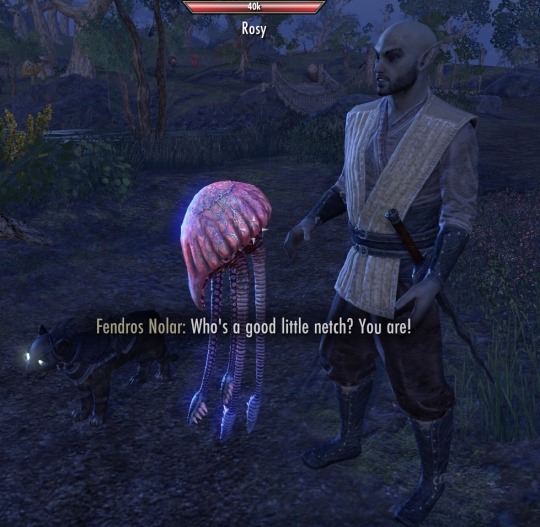Photo

“Thy people will find a way. For unlike the Daedra, ye mortals have the creative spark, and may make new things that were not before.”
–The Divine Voice speaking to Alessia. The Divines don’t just want you to believe in them, they believe in you too.
315 notes
·
View notes
Text
I don’t think I’ve ever seen an oc who actually properly likes the aedra
322 notes
·
View notes
Photo


According to the calculations of the sages of the Cult of the Ancestor Moth, the bantam guar is the cutest creature in all Tamriel.
1K notes
·
View notes
Photo

Voryn art. There’s no real theme here, but I felt like drawing something nice
175 notes
·
View notes
Photo
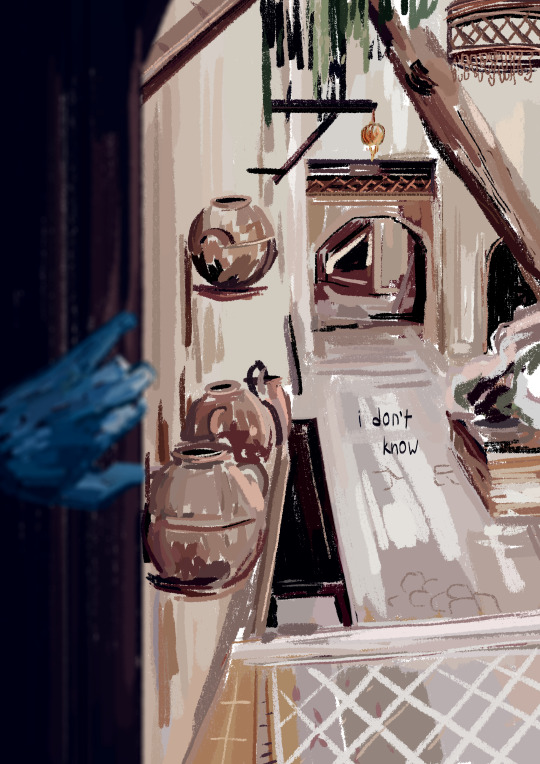
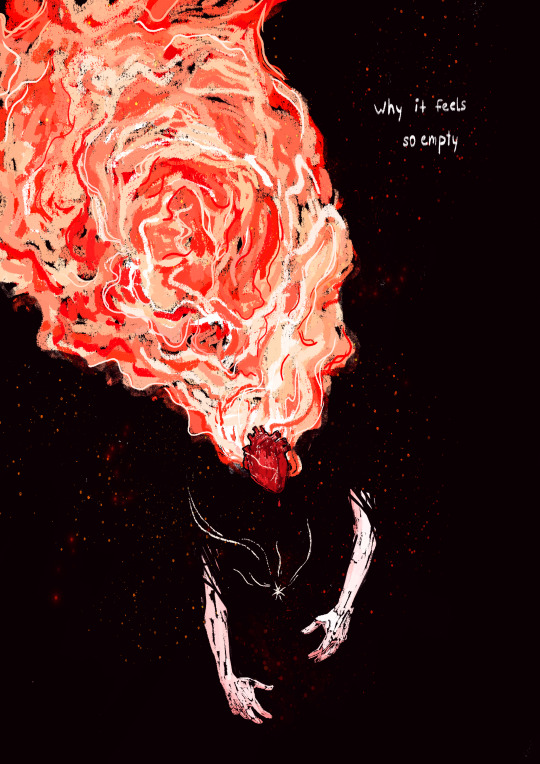


Beginning of morrowind quest line with a small drop of ‘’false dreamer’’ lore.
4K notes
·
View notes
Text
uncommon taste might be my new favorite lorebook
440 notes
·
View notes
Text
talos is easily the worst part of the lore he’s just three guys
2K notes
·
View notes
Text
Knights of the Wheel
by Henri Darveaux
“The steel that protects you is invisible. It runs in your veins, hot and shining like a mirage. Let it flow from you into the way you move. Move like this to spare you wounds: spin your spirit in circles.” - Frandar Hunding, The Book of Circles
Upon first glance, a Breton might not recognize a knight of Abibon-Gora as such. The only emblem of their prestige is their dual swords, curved as most of Hammerfell, and their ornately decorated crimson capes. Otherwise, they dress simply in the traditional, flowing garb of many desert-dwellers. These protectors of the Barony of Abibon-Gora don no armor for combat; their defense is their “invisible steel.”
For millennia, the Knights of the Wheel have been the marvel of this western region of Hammerfell, along the coast southwest of Sentinel. These valorous Redguards claim to need no more armor than the clothes they wear, for their faith in Julianos and the words of the legendary Frandar Hunding protect them from harm. Many locals even seem to believe this literally, thinking that their skin was made of steel. Your humble but skeptical author found these claims to be dubious, and wondered how their skin might truly be hardened thus. So I traveled to the city of Abibon-Gora to investigate.
When I arrived at the city, I immediately went to the Fighter’s Guild to hire one of their mercenaries. I found one such admirable Orc, who shall not be named here upon request of the Guild itself. Suffice to say, he was sufficient for my purposes, after offering a demonstration of his power. A magnificent slab of muscle enshrined within a glorious suit of Orcish armor, and wielding with brutal efficiency a mighty axe of similar caliber.
My dashing protector acquired, I proceeded to the hall of the Knights of the Wheel, and inquired of their seneschal where might be one of their most accomplished warriors. He offered me Sir Haribad, a tall Redguard woman whose highly-decorated mantle sharply contrasted her drab tunic. In the tradition of knightly honor, I challenged her to a duel, with my Orc companion as my representative combatant. She accepted, and we met the next day at the city’s arena. And as the two prepared to fight, I equipped my specially-enchanted ring of magic-sight.
You see, I had begun to suspect in my research that Abibon-Gora’s association with Julianos and the mystical defenses of its knights could not be coincidental. Despite the typical Redguard disdain for magic, I believed that there must be some spell or enchantment used by the Knights of the Wheel which gave them their special protection. So, prior to my journey to the city, I had purchased from my local enchanter a ring that can detect magic, allowing me to sense the presence of such effects.
When the ring took effect at the arena, I was immediately attuned to some magic in the room, giving me great, if brief, satisfaction. But as the detection focused, I noticed that the magic sourced not from Sir Haribad, but from my own combatant, instead. He seemed to possess some enchantment in his armor to enhance his strength. As per the scorn Redguards have for magic, duels such as these forbid its use. I immediately stood to stop the fight and my accidental duplicity, but was instead mesmerized by what I next witnessed.
The Orc’s enhanced strength was never utilized against Sir Haribad, for she would not allow his attacks to connect. She seemed to be a whirlwind of sword and crimson, avoiding and deflecting the Orc’s blows with profound grace, and striking through the chinks in his armor between his swings. Even the Orc’s dying rage could not halt the knight’s advance, and at last she stood victorious over his bleeding body, barely a tear in her simple clothing.
It occurred to me then that those passages of the Book of Circles, written by legendary Yokudan hero Frandar Hunding, that the Knights of the Wheel so praised, were far less mystical and far more literal than any Breton scholars had ever assumed. There was no magic at play, protecting the knights in lieu of armor; by eschewing heavy protection, they used their own agility to avoid their opponents’ attacks.
Upon the calling of the duel, I immediately approached Sir Haribad and the seneschal to apologize profusely, telling them about the enchantment on my combatant’s armor. They simply nodded. “It does not matter,” Sir Haribad said, wiping the blood from her blades off on her crimson cape.
“It does not matter?” I repeated, incredulous. Then, realizing, I asked, “You knew?”
She nodded. “I knew, yes. And I knew it would not matter.”
48 notes
·
View notes
Text
“Delivering Mail By Cliff Racer, or: How To Make Your Enemies Suffer”
“Delivering Mail By Cliff Racer, or: How To Make Your Enemies Suffer” by Anonymous
-
I shall make no disclaimer trying to dissuade you. If you have come far enough to obtain this book, I trust there is little anyone could do to deter you. That said, the art of sending letters and packages via cliff racer is a dangerous one to the uninitiated. This book aims to initiate you, and warn you how best to handle the challenges ahead. I recommend you read to the end of this tome, as I shall attach as postscript a list of materials you will need or want in order to accomplish this feat. Note that either sufficient magical prowess or access to adequate scrolls will be absolutely necessary for this task. It is simply impossible without the aid of wizardry.
-
The origins of this spiteful tradition lie in time immemorial, in the first days of the Great Houses, as proud Chimer rose from the ash to the height of glory. Those first days were no less fraught with House warfare than any other. But of course, sometimes you have foes who are of a middling nature, worth not challenge nor writ, but nonetheless repugnant and aggravating. For the worst of these, simple insults would not do. My ancestors (and now yours, dear reader) devised a system of assaulting nemeses with messages delivered by vicious cliff racers. No great masters of the art remain but I, and so I share its practice with you.
I shall say this only once, but it is paramount: You will not be taming a cliff racer. Their rage can be no less assuaged than can yours, dear reader. Your goal is only to direct it towards your enemies.
Keep reading
143 notes
·
View notes
Text
in-depth tes oc questions
some world-building and character-building questions.
It’s a little unreasonable for everyone in a Middle Ages-esque fantasy to be perfectly literate, and writing with quills was considered legitimate labor! How well can your oc read and/or write? How detailed is their quest log/journal, if they keep one at all?
How educated is your oc? Did their parents teach them, did they have a tutor or were they apprenticed to a master, or did they attend a university? What university? What are they educated in? How long did their education take? (Learned skills like blacksmithing count here too!)
Does your oc have any kind of crafting skills that either aren’t in-game or don’t have as much importance in-game as they would in real life? (For example, can your oc sew or weave, etc? Are they skilled in any kind of art? Can they make jewelry or work glass? Are they musicians? etc)
What pantheon does your oc worship? If they worship the Cyrodiilic/Imperial pantheon, does that include Talos? If they secretly worship Talos, how do they justify hiding it?
How religious is your oc? Do they come into conflict with others over their beliefs? If their patron deity told them to do something extremely undesirable or against their moral compass, would they do it? Would your oc sell someone’s soul for a corn chip?
Does your oc have a family of origin? How many members of their FoO are still living? Do they have a good relationship? How much contact does your oc have with their FoO? How in-the-loop is your oc’s FoO about your oc’s being Dragonborn/HoK/Nerevarine?
What social class was your oc born into? Did they change classes at all? How?
How politically active is your oc? Are they obviously influential, or is their influence more subtle?
What unplayable faction would/did your oc join, if any? Why?
How trustworthy is your oc? Would they ever change opposing factions?
What is your oc’s main source of income, if they have one besides plundering tombs and adventuring? If they’re mercenaries, are they part of a company? Does your oc own their own business, and if so, what is it?
Is your oc good with finances? Bartering? How long can they keep the money they make?
Does your oc have any particular rivalry or mutual dislike with any NPC?
How well-liked is your oc? What is their reputation, if they’re well-known? Are they simply liked/disliked, or are they respected but feared, or personally liked but not taken seriously, etc? Do major factions consider your oc an important player?
Does your oc have a horse/other mount? A pet? How did they get this animal? If they were given the animal, do they have the money to maintain it? How careful/careless are they with their animal? What do they do with their pets while adventuring, especially on dangerous quests?
Does your oc take their time as they travel, or are they purposeful? How do they survive in the wilds, especially if they aren’t hunter-types? How dependent is your oc on civilized society?
What does your oc like to eat? How much food do they eat? Can your oc cook, and can they do it well?
If your oc is a vampire, do they go outside in the daytime? Does the daylight affect or hurt them in any way different from in-game? If they interact with society, how do they justify looking half-dead and hating sunlight? How good is your oc at blending in? Do they even like dealing with society?
If your oc is a werebeast, how much control do they have over their transformations? Have they ever lost control? What happened? If not, why do they have such strong control? Does Hircine ever call on them, and do they answer?
What does your oc wear in the city/settlements? In the house? When travelling, but not adventuring or expecting combat? Do they vary their clothes depending on what hold/city they’re in? If they don’t, why not (e.g., if your oc wears the same outfit to tend their garden or lounge around the house as they did to meet Ulfric or Elisif, why?) Does your oc have a good or bad sense of fashion? How many clothes does your oc have?
How picky is your oc about their gear? Do they have different equipment for different adventures, or is it the same suit of armor for everything (not counting upgrades like from steel to ebony)?
How does your oc acquire their clothes, and from where/whom?
Can your oc swim, and how well? Have they ever swam in the ocean, or only lakes/rivers? Remember, it’s much harder to swim in the ocean than in a lake! If your oc is an Argonian, do they take special advantage of it somehow (e.g., do they go diving for fun/for profit, do they instinctively hide in the water, etc)? If your oc is a Khajiit who can swim, how do they get their fur dry?
How easy/difficult is it to rob your oc? Pickpocket? Bribe?
If your oc is part of one of the more morally questionable or outright evil factions, how do they justify it to themselves? Do they still consider themselves as morally good? How well known is their affiliation to these groups? Do they have separate personas (e.g. Dragonborn to some people, Listener to others)? Do their family/friends know? If they have separate personas, how do they keep their less than righteous activities secret?
How helpful is your oc, and why? Are they helpful or kind even during difficult situations? Are they pragmatic, or do they have a hero syndrome?
4K notes
·
View notes
Photo
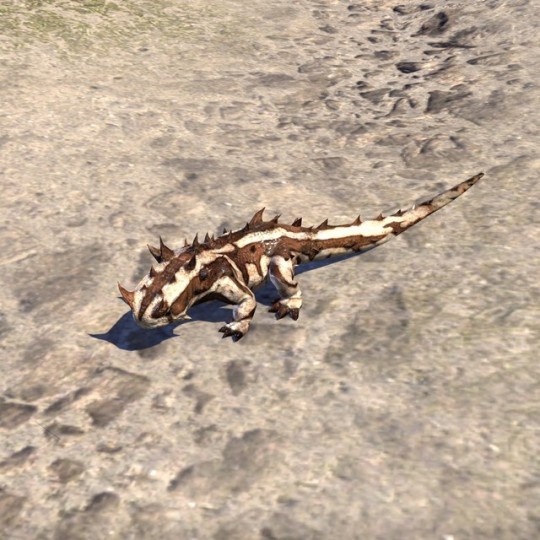


Pictured: A gecko in the desert, on a barrel, and on a rock.
3K notes
·
View notes
Photo
I'm sorry, but after reading that excerpt all I can think of is that elf practice meme from last year.
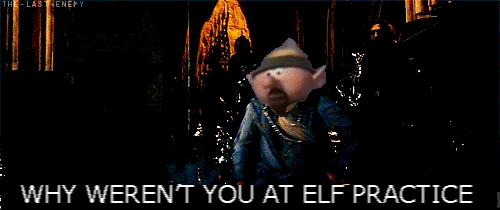
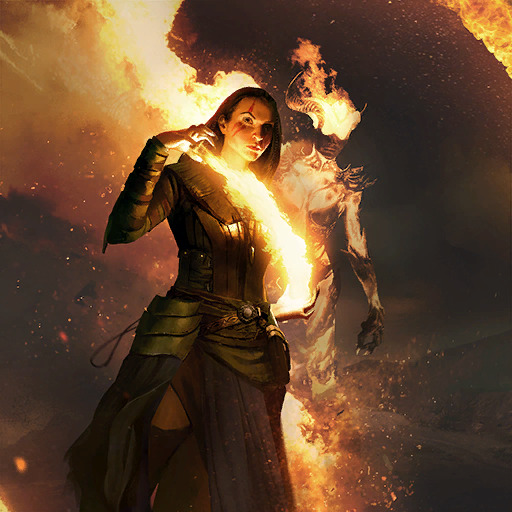
“The Bretons are nearly as fractious as their cousins the Nords, but their long tutelage under the Elves makes them open to the magical arts, rather than suspicious of them.”
–Excerpt from “Breton Style”, from a series of pamphlets on the major cultural styles of Tamriel
331 notes
·
View notes
Text
tamrielic language headcanons
altmeris differs in several small, significant ways from old aldmeris, its language of origin. it's an elaborate, nasal language, and altmer pride themselves on the fact that it's difficult for non-native speakers to master
dunmeris, once a "coarse" dialect of aldmeris, has developed into an entirely distinct tongue. like aldmeris, it's harsh and sharp, with few fricatives. unlike aldmeris, many of its syllables are snarled in a way most humans can't replicate. in a last desperate attempt to perfect their pronunciation, non-native learners of dunmeris will occasionally throw up their hands and start smoking
bosmeris, a language also derived from aldmeris, has branched even more wildly from its source. foreign learners are often baffled by the mixture of words, handsigns, and whistle-clicks that comprise the language, to the great amusement of native speakers—they don't particularly want outsiders to learn it anyway
saxhleel contains many sounds that are impossible for men and mer to pronounce, though your argonian friends will encourage you if you try! the language has several variant dialects, some of which are entirely unknown outside black marsh
ta'agra, like saxhleel, is extremely difficult for non-khajiit speakers to master. khajiit don't roll their r's, they purr them. many of the smaller furstocks have tongues ill-shaped for foreign languages, and must communicate in ta'agra almost exclusively—this is why, when you encounter a pair of khajiit merchants, the ohmes is more likely than the alfiq to do the talking. (an alfiq attempting cyrod would do so with the high, plaintive accent of a wailing cat)
orcish (not 'orsimeris,' as most orcs choose not to acknowledge their kinship with mer) is a blunt, gravelly tongue. much like the bosmer, orcs dislike outsiders learning their language and discourage its use outside the stronghold—many orcs won't even curse in their native tongue if a non-orc is around, unless that non-orc happens to be blood-kin
nordic is very similar to old norse, though it also draws from nedic, atmoran, and dovahzul. by the fourth era, it's seldom used until the stormcloak rebellion revives it. non-speakers are often mesmerized by the language's hard, rhythmic cadence
bretons have a number of sharp, quarrelsome dialects, most of which appear to stem from nedic and saliache. to us, a breton would sound rather french
yoku is not spoken half so rarely as cyrod scholars seem to think, and thrives in crown territories such as hegathe. most yoku-speaking traditionalists dislike the notion of 'borrowing' words from other languages; when a foreign word is adopted into yoku, a council of crown scholars convenes to devise a new word to replace it, drawing from totambic or some other native source
cyrodillic / cyrod is a heavy, austere language much like our own latin. ever since the empire came to power, it's been used as a "common" tongue in most provinces, but it was favored by merchants long before. etymologists have trouble tracing the roots of certain cyrodillic words, which resemble no language living, daedric, or dead—these irregularities in the imperial tongue are perhaps the last remaining evidence of some bitter, cataclysmic shift...
575 notes
·
View notes
Text
can’t wait until eso decides that the argonians have actually always worshiped the aedra and daedra with funny names too
659 notes
·
View notes
Text
Mokruhl and Amélie both love gardening, but for different reasons. He prefers to plant things like herbs, vegetables, and fruits. And he enjoys cooking with ingredients from his own garden.
She likes plants that are pretty or smell nice. That’s not to say that she doesn’t appreciate useful plants, she is an alchemist after all! But sometimes it’s just nice to plant something just because it makes you happy.
I think that they could get along if they ever met. She can be kind of frivolous, but he’s a patient orc and they could balance each other out quite nicely.
5 notes
·
View notes
